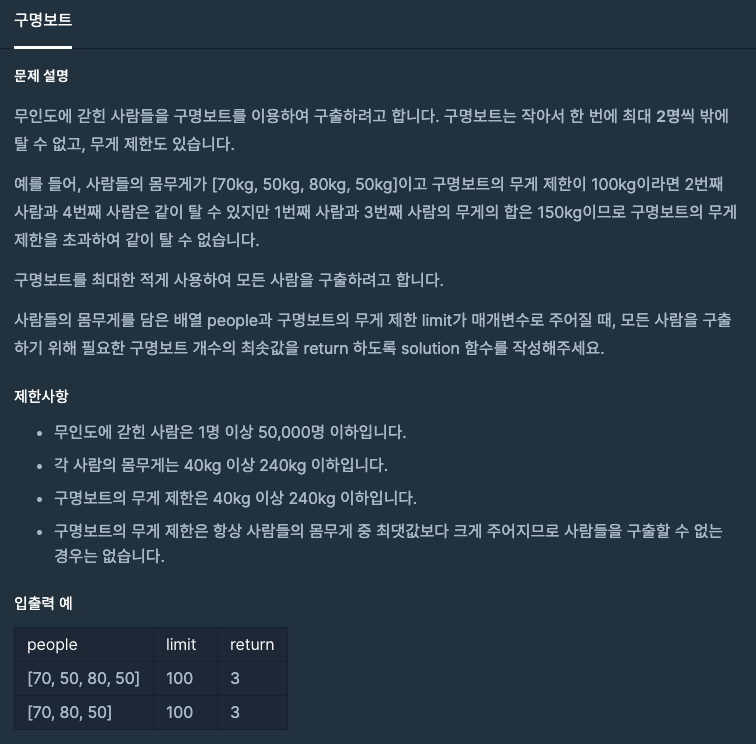[ 나의 코드 ] - 효율성 검사 실패
#include <string>
#include <vector>
#include <algorithm>
using namespace std;
int solution(vector<int> people, int limit) {
int answer = 0, free = limit, tmp;
pair<int, int> dif;
sort(people.begin(), people.end());
for(int i=0;i<people.size();i++)
{
if(people[i] > limit) continue;
answer++;
free = limit - people[i];
dif = {-1,limit};
for(int j=people.size()-1;j>=0;j--)
{
tmp = free-people[j];
if(tmp >=0 && dif.second > tmp){
dif = {j, tmp};
break;
}
}
if(dif.second < limit)
people[dif.first] = limit+1;
}
return answer;
}
- 같이 탈 수 있는 사람과 탔을 때, 가장 여유공간이 적게 남는 경우가 효율적!
- 해당 경우를 찾기 위해 이중 for문을 썼더니 효율성 검사에서 실패함
[ 최적의 코드 ]
#include <string>
#include <vector>
#include <algorithm>
using namespace std;
int solution(vector<int> people, int limit) {
int answer = 0, head = 0, tail = people.size()-1;
sort(people.begin(), people.end());
while(head <= tail)
{
answer++;
if(people[head] + people[tail--] <= limit) head++;
}
return answer;
}
- 같은 결과를 내지만 정렬 후 head / tail로 접근을 하면 훨~씬 빠르다! (..이런게 알고리즘의 힘인가)
- 주의해야 할 점은 반드시
tail에 해당하는 사람은 태워야 한다는 것이다!
-> 무게가 적은 사람들 끼리 있을 때 함께 탈 수 있는 경우가 더 발생하기 때문
[50 50 70 80] 일 때 head++를 하면 [50 70 80]이 되어서 효율적이지 않게 됨
(50 50 은 같이 탈 수 있는데 안태웠기 때문ㅠ)
- 함께 타지 못하는 경우에, 반드시 무게가 무거운 사람이 타야한다
--> 절대적인 특징 --> greedy algorithm

